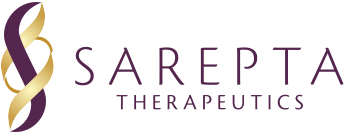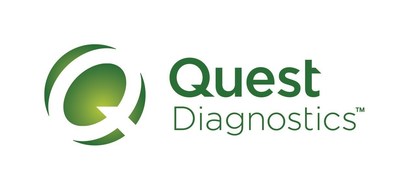« Back
Quest Diagnostics Granted FDA Breakthrough Designation for its Adeno-associated virus (AAV) Test
08/30/23 8:40 AM EDT
Quest and Sarepta Therapeutics Expand Collaboration to
The enzyme-linked immunosorbent in vitro diagnostic assay is for the semi-quantitative detection of antibodies (IgG) to AAVrh74 capsid in human serum. The test is intended to be used in conjunction with other available clinical information as an aid to identify patients eligible for treatment with
In addition, Quest and Sarepta, the leader in precision genetic medicine for rare diseases, today announced an expanded collaboration under which Quest will develop one or more companion or complementary diagnostics in connection with Sarepta's portfolio of investigational and on-market gene therapies. The collaboration may encompass screening assays for antibodies to Sarepta's AAV-vector based gene therapies for muscular dystrophies, including Duchenne muscular dystrophy (DMD) and limb girdle muscular dystrophies (LGMD). The first companion diagnostic will be for Sarepta's first gene therapy, ELEVIDYS (delandistrogene moxeparvovec-rokl), intended to treat the underlying genetic cause of DMD, which received
"Achieving breakthrough designation for our AAVrh74 ELISA, and collaboration with AAV-gene therapy pioneer Sarepta, positions Quest at the forefront of companion diagnostics innovation in the growing field of gene therapies," said
"Sarepta is pleased to expand its collaboration with Quest beyond our investigational therapies and to partner to develop essential diagnostic tools for our approved gene therapies that help streamline/match gene therapy treatment to eligible patients. Quest's diagnostic R&D capabilities and laboratory capacity play a critical role in identifying the patients who may benefit from these treatments," said
About AAV-Based Gene Therapies
Defective genes account for approximately 80% of more than 7,000 rare diseases. The goal of gene therapy is to deliver a functional copy of a missing or malfunctioning gene to the targeted cells. Current gene therapies are one-time treatments.
Adeno-associated virus (AAV) vectors may be engineered to act as therapeutic delivery vehicles to transfer coding changes into the cell. AAV vectors are being explored for numerous therapeutic applications, and they are the most commonly used viral gene delivery system in clinical trialsi. As pre-existing antibodies to the AAV can pose a potential risk to patient safety as well as limit the therapeutic potential, patients must be screened for antibodies to determine patient eligibility.ii Testing to identify the quantity of total binding antibodies (TABs) can help identify eligible patients.iii
About
About
Sarepta is on an urgent mission: engineer precision genetic medicine for rare diseases that devastate lives and cut futures short. We hold leadership positions in Duchenne muscular dystrophy (DMD) and limb-girdle muscular dystrophies (LGMDs), and we currently have more than 40 programs in various stages of development. Our vast pipeline is driven by our multi-platform Precision Genetic Medicine Engine in gene therapy, RNA and gene editing. For more information, please visit www.sarepta.com or follow us on Twitter, LinkedIn, Instagram and Facebook.
Sarepta Forward-Looking Statements
This press release contains "forward-looking statements." Any statements contained in this press release that are not statements of historical fact may be deemed to be forward-looking statements. Words such as "believes," "anticipates," "plans," "expects," "will," "intends," "potential," "possible" and similar expressions are intended to identify forward-looking statements. These forward-looking statements include statements related to the test and the expanded collaboration between Sarepta and Quest, including the potential to develop one or more complementary diagnostics.
These forward-looking statements involve risks and uncertainties, many of which are beyond Sarepta's control. Known risk factors include, among others: the expected benefits and opportunities related to the collaboration and the companion diagnostics may not be realized or may take longer to realize than expected due to challenges and uncertainties inherent in product research and development; the results of future research may not be consistent with past positive results or may fail to meet regulatory approval requirements for safety and efficacy; any potential future inability of the parties to fulfill their commitments and obligations under the collaboration; and those risks identified under the heading "Risk Factors" in Sarepta's most recent Annual Report on Form 10-K and most recent Quarterly Report on Form 10-Q filed with the
Any of the foregoing risks could materially and adversely affect Sarepta's business, results of operations and the trading price of Sarepta's common stock. For a detailed description of risks and uncertainties Sarepta faces, you are encouraged to review the
i AAV vectors: The Rubik's cube of human gene therapy: Molecular Therapy (cell.com)
ii Human Gene Therapy for Rare Diseases; Guidance for Industry (fda.gov)
iii Bioengineering a better adeno-associated virus vector for gene therapy (medicalxpress.com)
![]() View original content to download multimedia:https://www.prnewswire.com/news-releases/quest-diagnostics-granted-fda-breakthrough-designation-for-its-adeno-associated-virus-aav-test-301913751.html
View original content to download multimedia:https://www.prnewswire.com/news-releases/quest-diagnostics-granted-fda-breakthrough-designation-for-its-adeno-associated-virus-aav-test-301913751.html
SOURCE
Jen Petrella, Quest Diagnostics (Media): 973-520-2800 or mediacontact@QuestDiagnostics.com; Shawn Bevec, Quest Diagnostics (Investors): 973-520-2900; Tracy Sorrentino, Sarepta (Media): 617-301-8566 or tsorrentino@sarepta.com; Ian Estepan, Sarepta (Investors) 617-274-4052 or iestepan@sarepta.com
This section of our website may contain dated or archived information which should not be considered current and may no longer be accurate. For current information, you are encouraged to review our most recent official corporate documents on file with the U.S. Securities and Exchange Commission.

